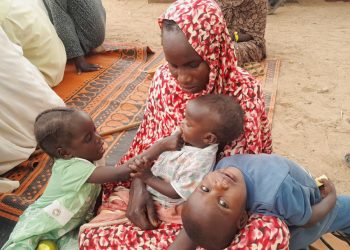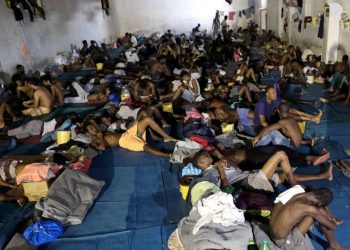Human Lives Human Rights: Violence in Chad has been escalating since late-2005 as Chadian rebels backed by the Sudanese government established bases in Darfur and began carrying out attacks across the border. The Chadian rebels attacked N’Djamena, the Chadian capital, in February 2008 but were repelled by Chadian government forces.
Darfur rebel groups have long had a presence in eastern Chad, including within refugee camps, which host more than 200,000 refugees from Darfur. The rebel faction JEM is a staunch ally of the Chadian government, acting as a proxy force against Chadian rebel groups in return for safe harbor, material and financial support.
In addition to Chad’s internal conflict, Sudanese Janjaweed militias and allied Chadian militias have been responsible for large-scale attacks against civilians inside Chad, most recently in March 2007, when at least 200 were killed in a village near the border with Sudan. Hundreds more were killed in attacks on more than 70 villages in November 2006.
Inter-communal tensions along the border with Darfur have been inflamed by the militia violence, and also by the Chadian government’s policy of funneling weapons to village-based self-defense forces along ethnic lines. This is apparently an effort to reduce support for Chadian rebel groups that operate in the same zone, and to create a first line of defense against cross-border incursions.
In September 2007 the United Nations Security Council approved a hybrid European Union (EU)/UN civilian protection mission for eastern Chad comprised of EUFOR, a 3,700-strong European Union military force, and MINURCAT, a UN humanitarian operation tasked with training police and improving the judicial system.
How can civilians be protected?
In the long term, a fundamental problem is that the Sudanese government continues to pursue policies that target civilians in Darfur, including through its military strategies, such as recruitment and use of abusive militias, and its providing impunity from prosecution to those responsible for crimes in Darfur. International institutions and governments must apply pressure on the Sudanese government to end these policies and practices, including through the application of targeted individual sanctions and other measures. Rebels and ex-rebels also need to be brought under pressure to end their abuses.
Now that the UN Security Council approved the deployment of a UN-AU “hybrid” peacekeeping force, it is up to the international community to ensure the force is properly equipped, deployed, and operates with a robust civilian protection mandate, and that the government of Sudan is not allowed to obstruct its deployment or hinder its operations.
UNAMID is to consist of up to 26,000 military and police peacekeeping personnel. A lesson learned from AMIS is that boots alone will not be enough to ensure UNAMID’s ability to carry out its civilian protection mandate. UNAMID will need to be widely and strategically dispersed throughout Darfur, have strong rapid response capabilities, carry out regular daytime and nighttime patrols, including firewood and market day patrols, employ well-trained and well-resourced policing units, and contain human rights officers whose findings are publicly reported. UNAMID should have a large number of staff who are experts in sexual and gender-based violence, as well as children’s rights. UNAMID should also improve humanitarian access so that aid organizations can provide assistance to populations at risk.
All of this will require substantial resources to support the force, including the provision of critical equipment such as helicopters. However, it will also require the political will to maintain pressure on Khartoum to actively facilitate the deployment of the force.


















